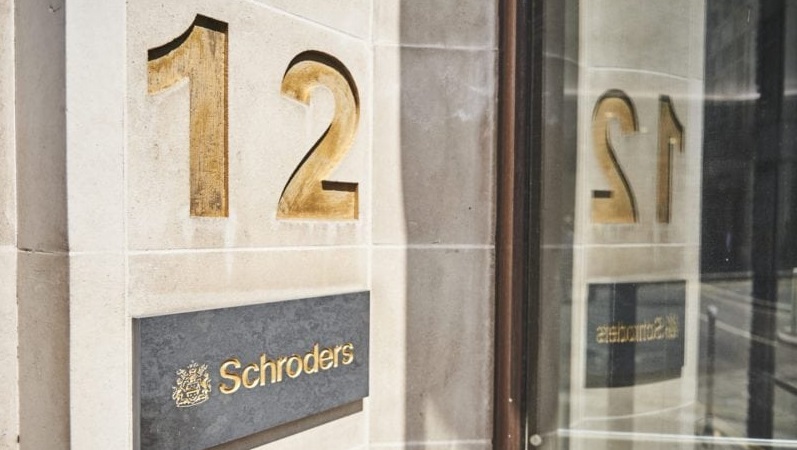Schroders has seen strong demand for its wealth management business ahead of launching its anticipated joint venture with Lloyds, while its asset management arm has been rattled by challenging markets.
The FTSE 100 manager said ongoing macro and political issues had impacted investor sentiment, resulting in net outflows of £11.2bn from its fund group in 2018 compared with last year’s net inflows of £7.6bn.
Profit before tax plunged 15% over the period from £688.7m to £588.2m.
Flows were much stronger on the wealth mangement side of the business.
AUM dipped from £45.9bn to £43.7bn, however, assets under administration spiked to £14.2bn from £11.3bn thanks to “strong flows” from its acquisition of Benchmark Capital. But net flows for the year of £1.7bn were still weaker than the £2.0bn brought in over 2017.
Elsewhere profits rose 1% to £68m, while net income was up 6% to £289.8m.
In total the group recorded net outflows of £9.5bn for the year compared with net inflows of £9.6bn in 2017. This dragged AUMA down 6% to £421.4bn.
The flow data does not include £85bn worth of net new business, which includes the competitively bid for £80bn Scottish Widows contract won from Lloyds as part of its joint venture deal with the high street bank that is expected to begin funding later this year.
Lloyds and Schroders announced a tie-up of their wealth, investment and financial planning businesses last year.
The joint-venture, which will be marketed under the brand of Schroders Personal Wealth and is due to launch in mid-2019, has eaten into 2018 profits at both businesses. Lloyds recorded weaker than anticipated profits after factoring in £1bn of costs related to its financial planning expansion, while Schroders said on Thursday it had racked up £56m in additional staffing costs ahead of the launch.
Profits at the investment manager were down 14% year-on-year from £760.2m in 2017 to £649.9m in 2018.
Bruno Schroder’s daughter installed on the board
In a separate announcement to its full year results the FTSE 100 firm confirmed Leonie Fane, daughter of the late Bruno Schroder, will replace him on the company’s board.
Rumours that she was to succeed her father last summer drew criticism with some speculating that Schroders was playing “fast and loose” with corporate governance. Founder of UK Fund Boards Shiv Taneja said the appointment of Fane, who has little City experience, could go down badly in the court of public opinion which had already had problems with Schroders in the past. The group’s decision to install former CEO Michael Dobson as chairman of the board is still regarded as a controversial move.
Schroders said Fane had been selected as a non-independent non-executive director by the nominations committee “after careful consideration”.
The board had been contemplating a successor for Schroder, who would have retired on 2 May 2019, since last year. Fane emerged as the “preferred candidate” after consulting with trustees of the family trusts and the principal shareholder group, the Schroder family.
The Schroder family remain the largest single shareholder in the business, owning 48% of the firm.
Dobson said that having two directors with a connection to the principal shareholder group was important for the long-term success of the business and is a practice dating back 40 years.
“We believe that having two members of the family serving on the board benefits the company in aligning interests and reinforcing long term thinking. Following these appointments, we will continue to have a majority of independent non-executive directors on the board.”
The committee also ran the appointment past major institutional shareholders who “all indicated support for the proposal … given the overall mix of skills on the board and the majority of independent non-executive directors.”
Deborah Waterhouse, chief executive of ViiV Healthcare, will also join the board as an independent non-executive director to replace current member Robin Buchanan who will retire at the conclusion of the AGM on 2 May 2019.










